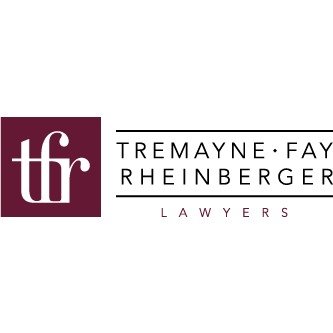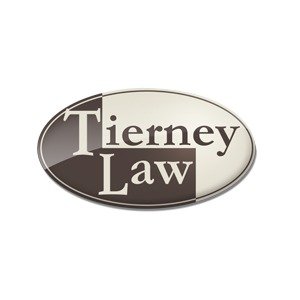Best General Litigation Lawyers in Hobart
Share your needs with us, get contacted by law firms.
Free. Takes 2 min.
List of the best lawyers in Hobart, Australia
About Litigation Law in Hobart, Australia
Litigation law in Hobart, Australia, revolves around resolving disputes and enforcing rights through the judicial process. Located in the state of Tasmania, Hobart provides a legal framework that supports fair and efficient dispute resolution across various areas such as commercial, civil, and criminal litigation. The legal process can involve various courts, such as the Supreme Court or the Magistrates Court of Tasmania, each handling specific kinds of cases. Successful litigation often requires a strong understanding of both procedural and substantive law, as well as the ability to effectively navigate the local legal system.
Why You May Need a Lawyer
There are numerous situations where individuals or businesses might require legal assistance in litigation. Common scenarios include contract disputes, property disagreements, personal injury claims, defamation cases, and family law matters like divorce or custody battles. Additionally, businesses might face litigation in areas such as intellectual property, employment law, or compliance disputes. A lawyer can help by providing expert guidance, representing your interests, and increasing the likelihood of a favorable outcome through skilled negotiation or court representation.
Local Laws Overview
Hobart, as part of Tasmania, follows state and federal laws governing litigation. Key aspects include procedural rules such as those outlined in the Uniform Civil Procedure Rules, which dictate how legal proceedings are conducted in courts. The Evidence Act 2001 is crucial for understanding how evidence must be presented and contested. Tasmania also emphasizes alternative dispute resolution (ADR) methods, encouraging mediation and arbitration to resolve disputes without court intervention. Local legal practice also adheres to ethical guidelines set by bodies like the Law Society of Tasmania, ensuring the integrity and fairness of litigation proceedings.
Frequently Asked Questions
What is the first step in the litigation process?
The first step typically involves consulting with a lawyer to assess your case and determine the best course of action, which often includes sending a formal demand letter or filing a complaint.
How long does litigation usually take in Hobart?
The duration varies greatly depending on the complexity of the case and whether it is settled outside of court or goes to trial, ranging from several months to years.
Can I represent myself in court?
Yes, you can represent yourself, but it is not recommended due to the complexities of legal procedures and the potential for negative outcomes if not handled properly.
What costs should I expect in litigation?
Costs can include legal fees, court fees, and other administrative expenses. Some lawyers offer no-win, no-fee arrangements in specific types of cases like personal injury.
Are there alternatives to going to court?
Yes, alternatives include mediation, arbitration, and negotiation, which can be less formal and more cost-effective than court proceedings.
What type of lawyer should I contact for litigation in Hobart?
You should contact a lawyer specialized in the area of law related to your dispute, such as a commercial litigation lawyer or family law attorney.
What is the statute of limitations for filing a lawsuit in Hobart?
The statute of limitations varies depending on the type of case, but typically ranges from one to six years. Consulting a lawyer promptly when a dispute arises is crucial.
How do I know if my case has merit?
A lawyer can help assess the strength of your case by evaluating the facts, evidence, and legal precedents related to your issue.
What happens if I lose my case?
If you lose, you might be liable to pay the other party’s legal costs, and you might have the option to appeal the decision under certain conditions.
Is it possible to settle a dispute without going to court?
Yes, settlements happen frequently, where parties agree on a resolution without a trial, which often saves time and resources.
Additional Resources
For those seeking more information or assistance, consider reaching out to the Law Society of Tasmania, which offers resources and referrals to licensed practitioners. The Tasmanian Legal Aid Commission provides support for those in need of financial assistance. The courts’ official websites also provide useful details on procedures and legal tools available to the public.
Next Steps
If you require legal assistance in litigation, begin by researching and contacting qualified lawyers who specialize in your area of concern. Consider scheduling consultations to discuss your case and understand potential legal strategies. It is also essential to gather all relevant documents and evidence related to your dispute. Thorough preparation and professional guidance are key components in navigating the litigation process effectively.
Lawzana helps you find the best lawyers and law firms in Hobart through a curated and pre-screened list of qualified legal professionals. Our platform offers rankings and detailed profiles of attorneys and law firms, allowing you to compare based on practice areas, including General Litigation, experience, and client feedback.
Each profile includes a description of the firm's areas of practice, client reviews, team members and partners, year of establishment, spoken languages, office locations, contact information, social media presence, and any published articles or resources. Most firms on our platform speak English and are experienced in both local and international legal matters.
Get a quote from top-rated law firms in Hobart, Australia — quickly, securely, and without unnecessary hassle.
Disclaimer:
The information provided on this page is for general informational purposes only and does not constitute legal advice. While we strive to ensure the accuracy and relevance of the content, legal information may change over time, and interpretations of the law can vary. You should always consult with a qualified legal professional for advice specific to your situation.
We disclaim all liability for actions taken or not taken based on the content of this page. If you believe any information is incorrect or outdated, please contact us, and we will review and update it where appropriate.















